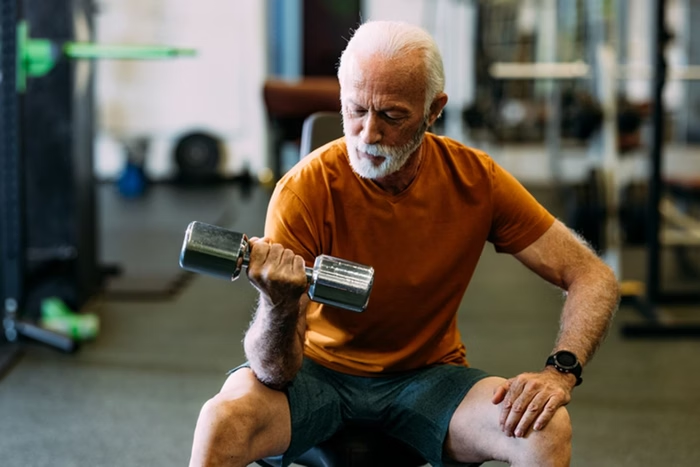
Physical Strength: A Foundation for Longevity
Longevity is a goal shared by many, but living longer isn’t just about adding years to your life. It’s about ensuring quality of life, independence, and vitality as you age. Physical strength plays a critical role in this journey, serving as one of the most important pillars for aging healthily and resiliently.
Why is Physical Strength Important?
As the human body ages, it undergoes various changes, including the loss of muscle mass and bone density. This process, known as sarcopenia, can start as early as your 30s and accelerates after 60. Without a strong musculature, the risk of falls, injuries, and loss of independence increases.
Studies show that maintaining muscle strength not only prevents these issues but also improves cardiovascular health, regulates blood sugar levels, and enhances mental well-being. In short, physical strength is essential for living with energy and independence.
Benefits of Building Physical Strength
- Prevention of Chronic Diseases: Strength training reduces the risk of type 2 diabetes, hypertension, and cardiovascular diseases.
- Improved Mobility: Strong muscles support healthy joints and make daily movements easier.
- Increased Endurance: Greater strength enables you to perform tasks with less effort, even in advanced age.
- Psychological Well-being: Physical training is associated with reduced symptoms of anxiety and depression, as well as improved self-esteem.
How to Strengthen Your Body for Longevity
Building and maintaining physical strength requires consistent commitment to physical activity and a healthy lifestyle. Here are some strategies:
1. Resistance Training
Exercises such as weightlifting, functional training, or bodyweight exercises are ideal for building and maintaining muscle mass.
Tip: Start with two to three sessions per week, focusing on exercises for all major muscle groups.
2. Balance and Flexibility Training
Practices like yoga and Pilates help improve posture, prevent falls, and increase mobility.
Tip: Include stretching or yoga sessions in your weekly routine.
3. Proper Nutrition
A diet rich in proteins, vitamins, and minerals is crucial for muscle building and bone maintenance.
Tip: Incorporate sources of lean protein (such as fish, chicken, or legumes) and foods rich in calcium and vitamin D into your diet.
4. Rest and Recovery
Rest is just as important as training. During sleep, the body repairs muscles and strengthens bones.
Tip: Prioritize 7-9 hours of sleep per night and include rest days in your training routine.
Inspiration to Start
Regardless of age or fitness level, it’s never too late to begin. Small changes in your routine can lead to significant improvements in strength and quality of life.
At Treino.eu, we are here to support you on this journey. Explore our articles and programs to find the right plan for your needs and goals. Remember: the strength you build today will be the foundation for your tomorrow.
Conclusion
Physical strength is more than just an indicator of fitness. It’s a vital component of a long, healthy, and independent life. Invest in yourself, start today, and build a solid foundation for a more active and happy future!
